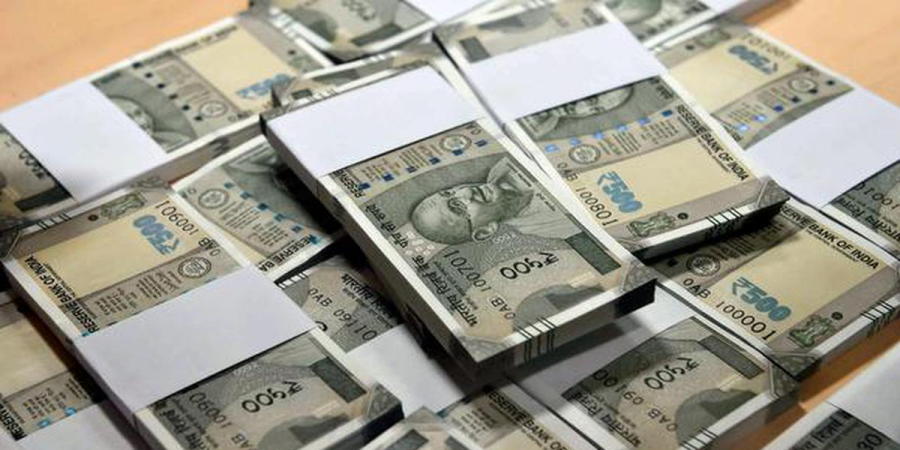

Black money, referring to unaccounted and illicit wealth that is often generated through illegal means, is a major issue in India’s political landscape. Over the years, there have been increasing concerns regarding its influence on elections. The use of black money by political parties in elections is a complex and controversial issue, which undermines the transparency and integrity of democratic processes.
Black money refers to income earned through illegal or undeclared sources. This wealth is often hidden from government scrutiny to evade taxes. It is typically stored in offshore accounts or used in cash transactions, making it difficult to trace. Black money may come from activities such as bribery, corruption, tax evasion, and illegal trade.
In the context of elections, black money is primarily used to fund political campaigns, pay for voter inducements, and bribe officials, thus manipulating the democratic process. Political parties and candidates may use unaccounted funds to sway voters, ensuring that their candidate has a financial advantage over opponents.
The issue of black money in Indian elections is far-reaching and multifaceted. Here are some of the ways black money is used by political parties:
Election Campaign Financing:
One of the most common uses of black money is to finance election campaigns. Political parties spend large sums on rallies, advertisements, media campaigns, and logistics, often using illicit funds to cover these costs. The official expenditure limits set by the Election Commission of India (ECI) are sometimes ignored, and black money helps circumvent these limitations.
Voter Inducements:
The distribution of money or gifts to voters is another method employed by parties to influence voting behavior. This could include giving out cash, liquor, or other incentives to secure votes. Such inducements undermine the free and fair nature of the election process.
Bribing Officials:
Black money is often used to bribe election officials, law enforcement, or even the media to ensure that the election is swayed in favor of a particular party or candidate. This can include paying off election observers or manipulating vote counts.
Underground Networks:
Several underground financial networks facilitate the movement of black money during elections. These networks include hawala operations, unregulated financial institutions, and even foreign accounts, making it easier to move large sums without detection.
Recognizing the pervasive threat posed by black money in elections, the Indian government has taken various steps to curb its influence:
Electoral Bonds:
The introduction of electoral bonds in 2018 aimed to bring transparency in political funding. These bonds can be purchased by individuals or entities and donated to political parties. However, critics argue that electoral bonds, despite being a step towards transparency, could also be used to channel black money due to the anonymity they provide.The Supreme court banned electoral bonds through a judgement in 2024.
Tax Reforms and Demonetization:
The government’s demonetization initiative in 2016 sought to reduce black money in circulation by banning high-denomination currency notes. Though it aimed to discourage hoarding of unaccounted wealth, its impact on electoral politics remains a subject of debate.
Election Expenditure Monitoring:
The Election Commission has put in place measures to monitor the expenses of political parties and candidates. Party finances must be disclosed, and expenditure limits are set. However, the enforcement of these rules often remains weak, and many parties find ways to bypass these checks.
Whistleblower Protection:
The government has also tried to encourage citizens to report election malpractices through various whistleblower mechanisms, although these initiatives have had limited success.
Despite these efforts, the use of black money continues to be a significant challenge. Some of the key barriers to effectively tackling this issue include:
Weak Enforcement:
Although laws and regulations exist, enforcement remains a challenge. Corruption within the political system and law enforcement agencies often results in the evasion of legal measures designed to curb black money.
Lack of Transparency in Funding:
Despite reforms like electoral bonds, there is still a lack of full transparency regarding the sources of political funding. Many donations are made anonymously, making it difficult to track illicit funds.
Limited Public Awareness:
Voter education on the harms of black money and its impact on democracy is lacking. In many regions, voters may be influenced by the immediate benefits of receiving bribes or inducements, without considering the long-term consequences.
Cash Economy:
India’s informal, cash-based economy further complicates the problem. Many transactions in rural areas are conducted in cash, making it easier to funnel black money into election-related activities without detection.
The use of black money in elections severely undermines the democratic process. It distorts the level playing field, enabling wealthy individuals or parties with access to illicit wealth to dominate the electoral race. This creates an uneven electoral environment, where parties with fewer financial resources find it difficult to compete.
Moreover, the involvement of black money in elections perpetuates corruption. It strengthens the nexus between politics and criminality, undermining public trust in the system. Citizens may become disillusioned with the electoral process when they perceive that money plays a more significant role than merit or policy.
Black money continues to play a destructive role in Indian elections, with its use contributing to corruption, electoral fraud, and the erosion of democratic values. While the government has taken steps to address the issue, much more needs to be done to ensure that political parties are funded transparently and that the influence of illicit wealth is minimized. To restore faith in the electoral system, a comprehensive approach that includes stricter enforcement of laws, greater transparency, and public education about the dangers of black money is essential.
Without addressing this issue effectively, India’s democracy will continue to face challenges that undermine its core principles of free and fair elections.


